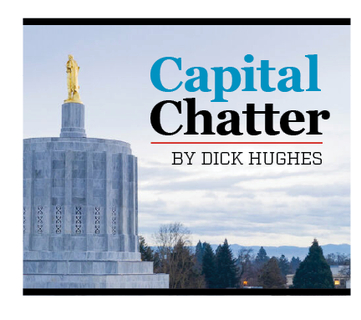Capital Chatter: Oregon budget writers can’t please ’em all
Published 5:37 pm Thursday, March 27, 2025
The Oregon Legislature’s budget writers face an impossible task: pleasing everyone in an era of startling political and economic upheaval.
Oregon has survived tumult before.
The Joint Ways & Means Committee and the full Legislature somehow will complete their work by the June 29 constitutional deadline.
But it won’t be pretty.
That was evident Saturday when Ways & Means members traveled to Mt. Hood Community College in Gresham for a standing-room-only budget hearing that lasted over two hours.
Around 250 people signed up to testify. Several dozen got the opportunity. Almost everyone had compelling ideas for where to spend more. Hardly anyone suggested where to spend less.
Democrats control the Legislature. The Ways & Means co-chairs are Portland Democrats – Sen. Kate Lieber and Rep. Tawna Sanchez. Saturday’s audience in East Multnomah County consisted mostly of interest groups allied with Democrats.
Lieber leveled with the crowd: “We are not going to have enough money to pay for everything.
“And if federal spending is cut, it will impact services to Oregonians. The state budget is not designed to backfill federal funding. The state budget is designed to draw down federal funds that provide critical services.”
Rep. David Gomberg, D-Otis, co-vice chair of Ways & Means, explained Saturday’s colorful atmosphere in his weekly newsletter:
“Public employees were in purple, gun control advocates and teachers in red, county and municipal workers in green, food advocates in blue, and infrastructure advocates in orange vests and hardhats. … People lined the sidewalk leading to the theater, chanting and singing. It was friendly, but also a bit intimidating.
He added, “We heard passionate and poignant stories and pleadings for increased funding of schools, special education, food programs, emergency housing, health and behavioral health, public wages, public safety, and public transportation.”
The 2025 Legislature is tasked with revising state transportation funding. Gas tax receipts are declining, truckers are overburdened, and the Oregon Department of Transportation faces a huge shortfall, as well as questions about the agency’s performance.
This was the first of six budget hearings around the state. The next is at 5 p.m. Friday at Liberty Theatre Astoria. Others are scheduled for Warm Springs, April 4; La Grande, April 11; Salem, April 16, with an emphasis on virtual testimony from around the state; and Klamath Falls, April 25.
Oregon will enter the two-year budget period on July 1 with healthy reserves. But, as Lieber pointed out, the outlook could be scary.
The Trump administration unilaterally is slashing federal jobs, withholding payments to Oregon and other states, canceling business contracts, and halting the grants that many nonprofits count on.
Depending on one’s viewpoint, on a macro scale those cutbacks might be worthwhile. On a micro scale, every Oregon community – especially in rural areas – and many families will feel the economic hit.
Meanwhile, the newly awakened trade wars will boost costs for Oregon consumers and businesses while making Oregon exports less attractive to foreign buyers.
The question becomes: Who in legislative leadership will have the clout and the guts to tell their colleagues, constituents and interest groups they’re not getting all they want. Even Democratic Gov. Tina Kotek wants more for her initiatives than what Lieber and Sanchez recommended.
“With all due respect to our budget co-chairs, I disagree. They do have the resources to fund the investments,” Kotek told journalists on Monday.
During an online town hall this week, Sen. Anthony Broadman, D-Bend, stated the obvious: “It’s going to be a very challenging end-of-session budget conversation.”






